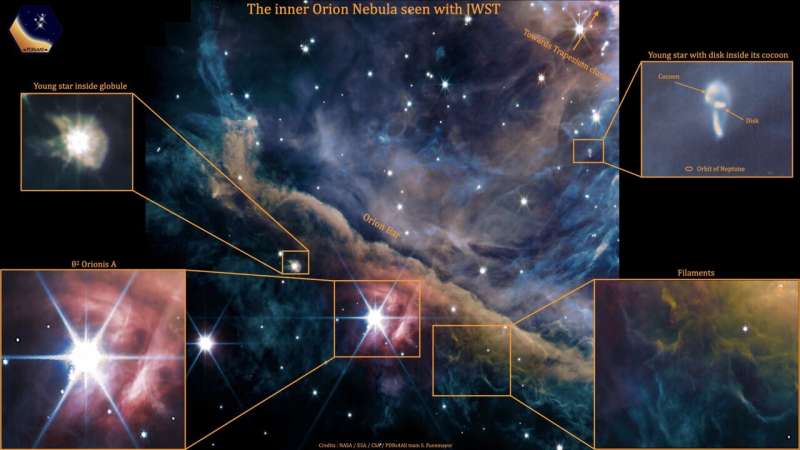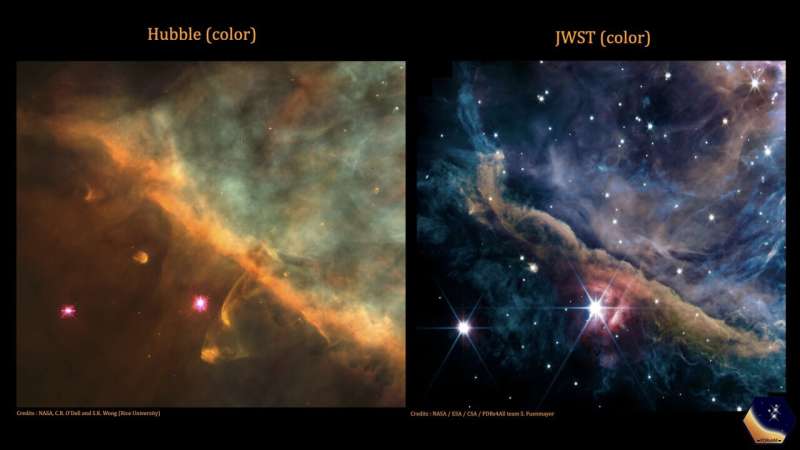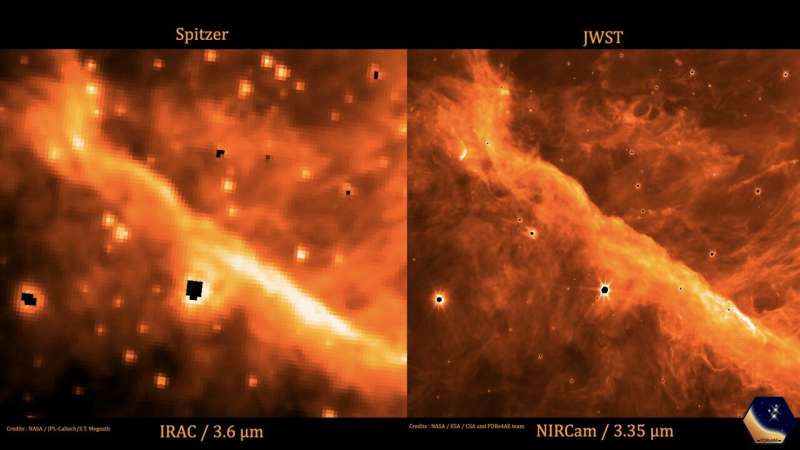The wall of dense gasoline and dust resembles a large winged creature, its glowing maw lit by a vibrant star because it soars via cosmic filaments.
A world analysis workforce on Monday revealed the primary photographs of the Orion Nebula captured with the James Webb Area Telescope, leaving astronomers “blown away.”
The stellar nursery is located within the constellation Orion, 1,350 light-years away from Earth, in the same setting wherein our personal solar system was birthed greater than 4.5 billion years in the past.
Astronomers have an interest within the area to higher perceive what occurred in the course of the first million years of our planetary evolution.
The photographs had been obtained as a part of the Early Launch Science program and concerned greater than 100 scientists in 18 nations, with establishments together with the French Nationwide Heart for Scientific Analysis (CNRS), Western College in Canada, and the College of Michigan.

“We’re blown away by the breathtaking photographs of the Orion Nebula,” Western College astrophysicist Els Peeters mentioned in a press release.
“These new observations enable us to higher perceive how massive stars rework the gasoline and dust cloud wherein they’re born,” she added.

Nebulas are obscured by giant quantities of dust that made it inconceivable to look at with seen gentle telescopes, such because the Hubble Area Telescope, Webb’s predecessor.
Webb nonetheless operates primarily within the infrared spectrum, penetrating the dust.
This revealed quite a few spectacular buildings, right down to the size of 40 astronomical items, or the scale of our solar system.
These embody dense filaments of matter, which might start new generations of stars, in addition to forming stellar methods that encompass a central proto-star surrounded by a disk of dust and gasoline, wherein planets type.

“We hope to achieve understanding about your entire cycle of star start,” mentioned Edwin Bergin, College of Michigan chair of astronomy and a member of the worldwide analysis workforce.
“On this picture we’re this cycle the place the primary era of stars is basically irradiating the fabric for the following era. The unimaginable buildings we observe will element how the suggestions cycle of stellar start happens in our galaxy and past.”
Webb is probably the most highly effective space telescope ever constructed, boasting a primary mirror measuring 6.5 meters (greater than 21 ft) that’s made up of 18 hexagonal, gold-coated segments, in addition to a five-layer sunshield the scale of a tennis court docket.
pdrs4all.org/pdrs4all-first-images-release/
© 2022 AFP
Quotation:
Webb telescope captures ‘breathtaking’ photographs of Orion Nebula (2022, September 12)
retrieved 12 September 2022
from https://phys.org/information/2022-09-webb-telescope-captures-breathtaking-images.html
This doc is topic to copyright. Aside from any truthful dealing for the aim of personal examine or analysis, no
half could also be reproduced with out the written permission. The content material is supplied for data functions solely.




